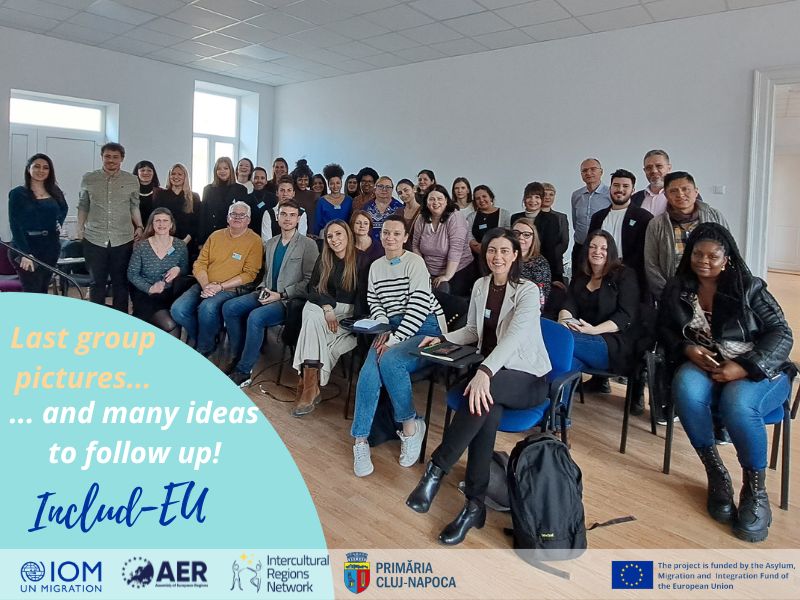 Share this!
Share this!The Includ-EU Workshop “Whole-of-Society Approach: Cross-sectoral and Multistakeholder collaboration for inclusion” in Cluj-Napoca gathered around 70 representatives from the Netherlands, France, Spain, Belgium, Ireland, Greece, Italy, Slovenia, Romania to explore shared challenges, enabling factors for change, and the transferability of experiences. It was also an opportunity for the AER to reconnect with its Romanian members and hear about current stakes.


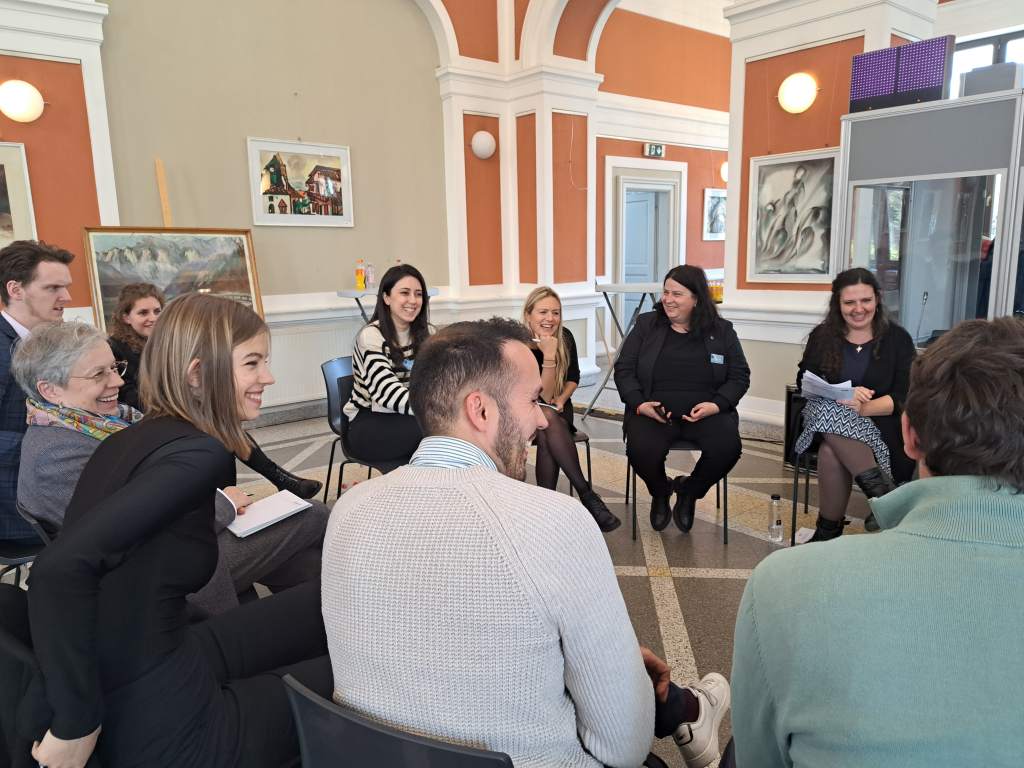
Includ-EU: learn, build, share… repeat
Includ-EU is an EU-funded project which facilitates capacity building and mutual learning. It also supports the implementation of actions that impact local and regional stakeholders directly, such as:
- psycho-social mentoring between young girls migrating alone and female university students in Catalonia
- innovative social housing solutions in Tuscany
- the implementation of inclusive health services in Crete
- digital skills, practical knowledge and language programme in Jesenice
- comprehensive early-stage integration orientation in Tilburg
Through these different activities the Includ-EU project fosters capacity development, exchange and engagement for enhanced social cohesion in Europe. More information on the different pilots can be found on the Includ-EU website.
A need for better information and support
The integration process connects a wide range of practicalities as well as both compulsory and optional administrative procedures in sectors as diverse as health, education, housing, work. Failure to comply with procedures can have dramatic impacts on individuals and families. At the same time, it is often difficult for users to understand how the different procedures connect, which are the most urgent or obligatory ones, and where to find the relevant information.
On the side of administrations or non-governmental organisations, understanding the circumstances and needs of migrants to provide adequate services can prove a daunting exercise. This leads to considerable frustration, both for users and for organisations involved in the integration process.
The one-stop shop model
In Cluj-Napoca, the one-stop shop for migrants emerged as a response to this need for better, more complete and clearer information, expressed both by migrants and authorities. One-stop shops are services designed following a holistic approach: concentrating services in one location can help newcomers understand what services are on offer and improve collaboration between providers.
However, this approach needs to be tailored to the specific context and be interactive. Roadblocks to implementing genuine one-stop shops vary, from different levels of government not seeing eye-to-eye on migration and integration to a lack of funding and limited pre-existing partnerships between very different institutional stakeholders (for example, the police and NGOs). This model may therefore be complicated to implement for cities with a relatively nascent integration infrastructure.[1]
The Includ-EU workshop was an opportunity to deepen and discuss the one-stop shop model and visit the Cluj-Napoca one-stop shop. Participants heard from Emilia Alina Botezan, Head of International Affairs and Foreign Investment Department, Cluj-Napoca City Hall, about the vision and services it aims to deploy, as well as to hear from other authorities how they have been implementing the model, in particular Milan and its WISH-MI wellbeing integrated system, presented by Emanuela Losito from the Milan Municipality.
Cross-sectoral collaboration: the role of local and regional authorities
During the first roundtable discussion, moderated by AER Secretary General Christian Spahr, speakers from the national, regional and local levels presented examples of how they are facilitating cross-sectoral collaboration to better address needs, and iterate in unforeseen circumstances. Recent examples thereof are the COVID-19 pandemic and the war in Ukraine, both of which led to urgent and pressing needs in complex situations, where social infrastructures were both challenged and re-organised thanks to cross-sectoral collaboration. Examples shared in the roundtable included multistakeholder collaborations facilitated from the national level, for instance in Romania or in Slovenia, as well as examples from the regional level from Maramures (RO) and Mayo (IE) and the local level, with the experience from the Milan Municipality (IT). In such contexts, authorities appear more and more to be facilitators and supporters of collaborations, rather than purely top-down organisers.
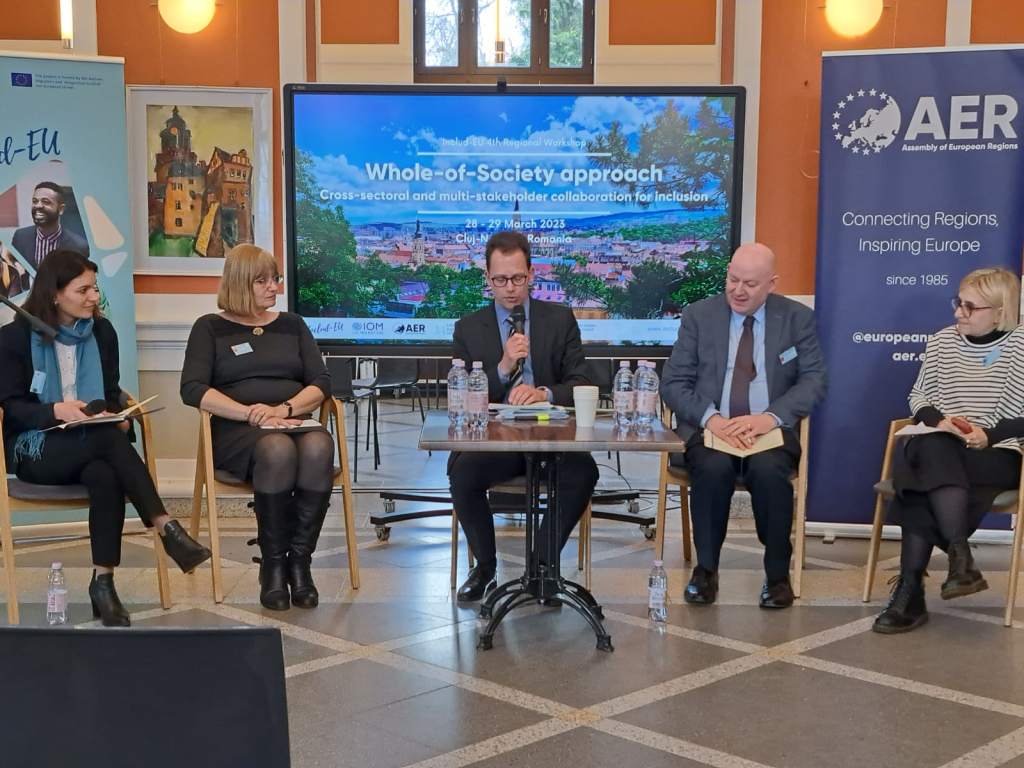
This implies a change in governance, as well as reflections on resilience and the capacity of systems to learn from what they developed during a crisis. As the knowledge transfer discussions revealed, it may be particularly difficult to address pressing needs, adapt to reality, and develop systems and practices of collaboration that are both resilient and adaptive.
Peer-learning to accelerate change
In complex and changing circumstances, exchanging with peers becomes therefore all the more relevant to:
- recognise commonalities
- discuss shared challenges
- examine ways in which these are being addressed in different regions
The Includ-EU workshop was designed in a way to create a special experience and deepen the connection between participants, be it within the consortium, between project partners and invited experts, or between participants from the same country.
By creating different spaces for smaller group discussions, and encouraging the sharing of experiences including successes, mistakes, or former gaps in understanding, this workshop facilitated the transfer of practices and ideas, generated new knowledge and further consolidated the informal network of peers of regions and local authorities which the Includ-EU project developed.
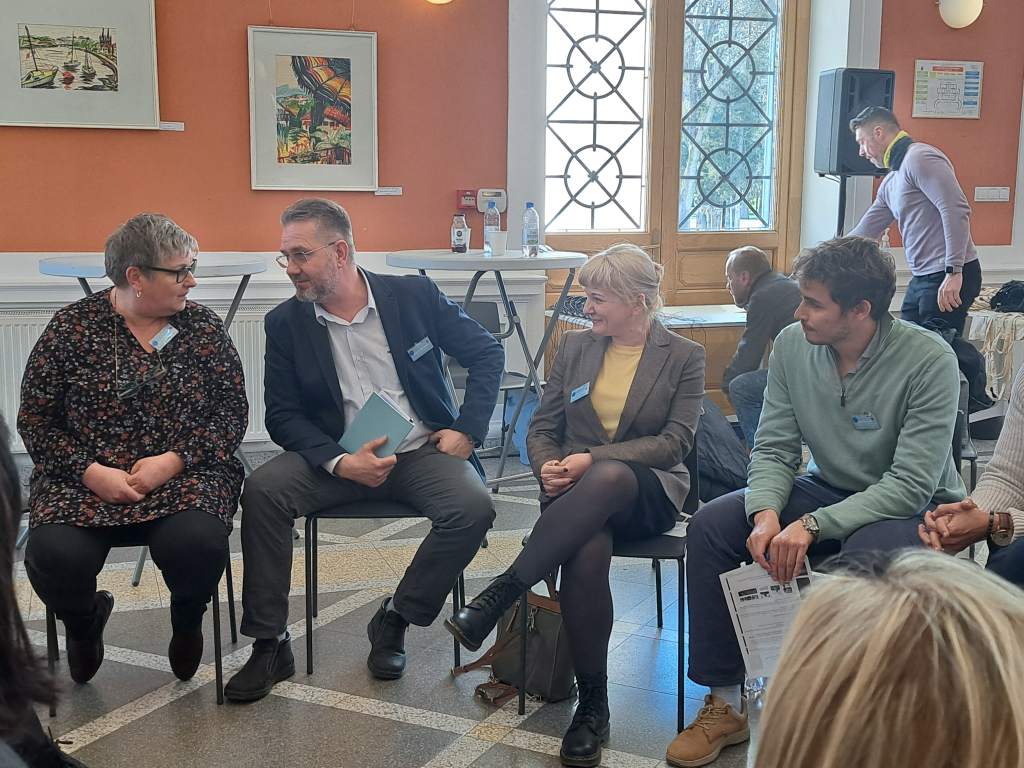
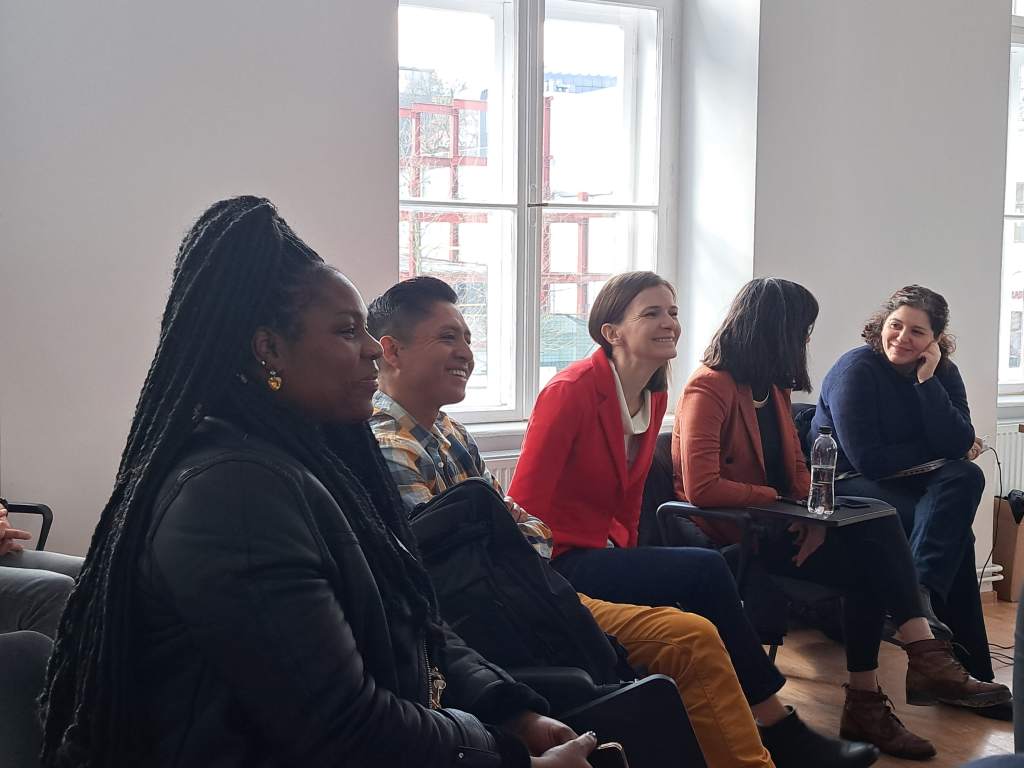
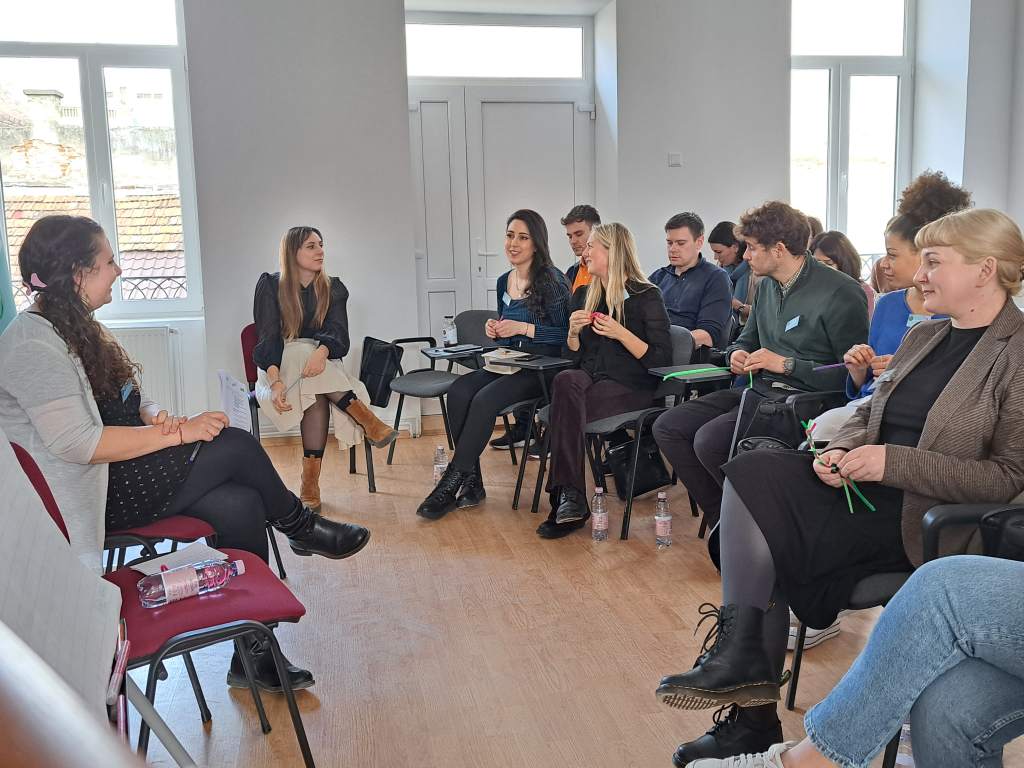
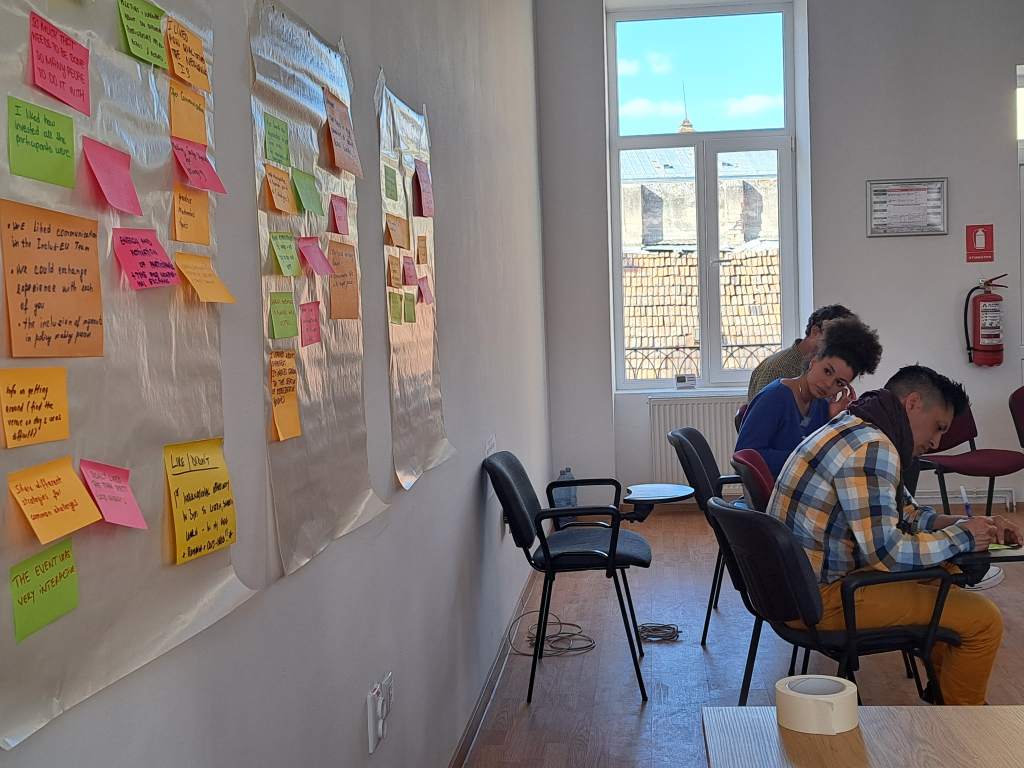

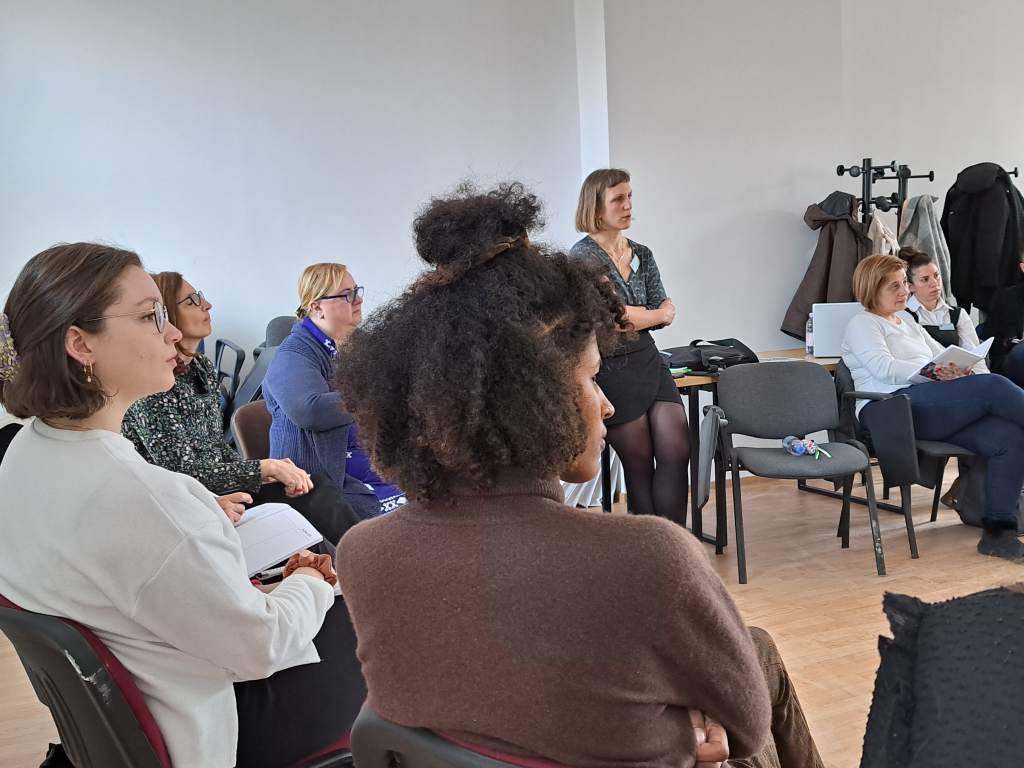
Effective policymaking involves listening better
The Includ-EU workshop in Cluj-Napoca specifically aimed to facilitate mutual learning around effective multistakeholder collaboration and civic participation. Active civic participation is one of the pillars of the intercultural approach as laid down by the Council of Europe’s ICC Programme:
active citizenship and participation occur when stakeholders (all citizens, including foreign residents where appropriate) have the right, the means, the space, the opportunity and the support to freely express their opinions and influence decision- making on matters that affect them. In some situations, participation may mean those who are directly affected taking the lead and driving the process. Intercultural participation requires an equal and respectful basis, in which everyone feels heard, and involves tackling obstacles that may hinder certain stakeholders’ active participation.
Intercultural Glossary, Intercultural Cities Background documents
Effective multistakeholder collaboration and participation therefore include:
- identifying which stakeholders are missing in a conversation
- designing processes to include more diverse voices in policymaking,
- generating interest in participation,
- being clear about impact and objectives,
- revising processes
- having a reflective practice
Active participation of migrants in policy-making: the role of authorities
To learn about practices, which support the active participation of people with a migratory background, experts from different regions and organisations, discussed in a panel facilitated by Calin Rus, Director of the Intercultural Institute of Timisoara
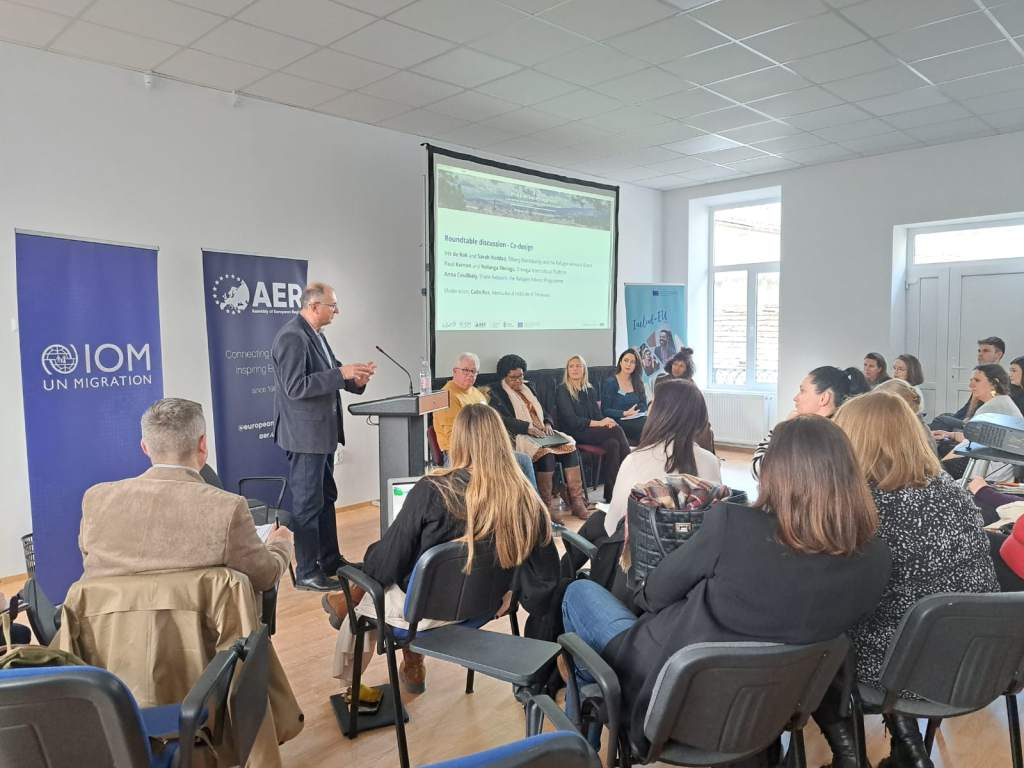
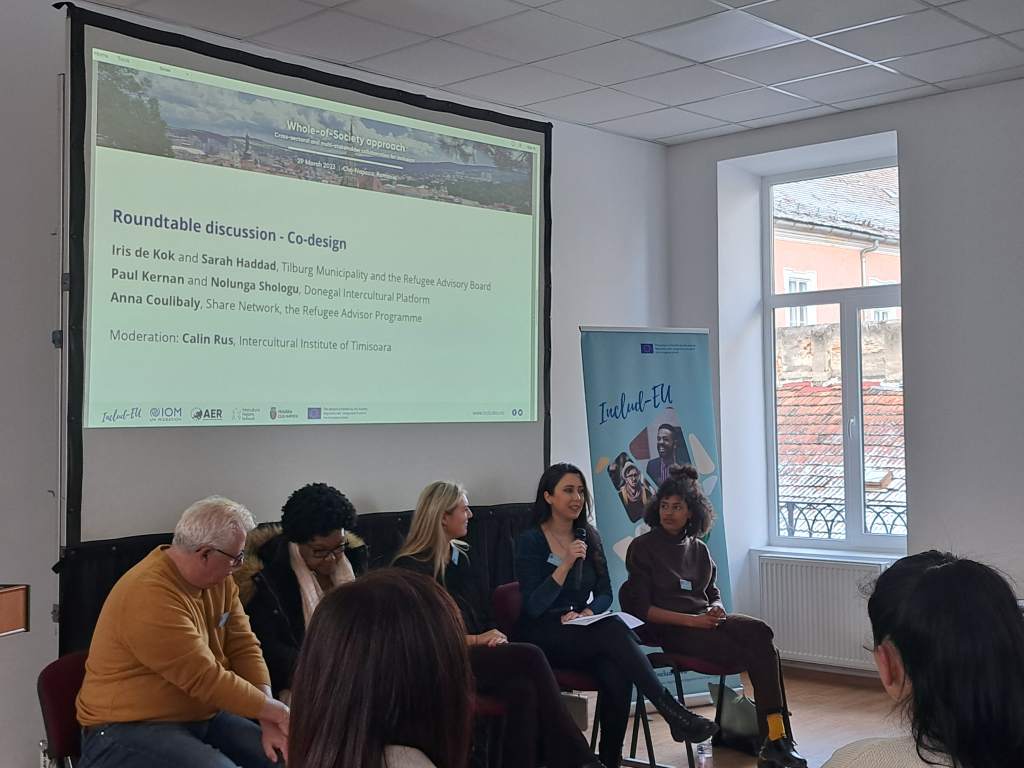
The roundtable specifically provided insights into the functioning, achievements, evolution and challenges of:
- The Tilburg Refugee Advisory Board: Iris de Kok, representing the Tilburg Municipality, and Sarah Haddad from the Refugee advisory board shared how this Board was created, what its purpose is and how it is continuously improved to increase impact.
- Learning point: test before having a perfect proposal, then incorporate feedback loops to improve processes, capacity of stakeholders, outputs
- The Donegal Intercultural Platform: Paul Kernan Coordinator, and Nolunga Shologu, Community Worker presented how the Platform is collaborating with Donegal County Council to amplify the voice of minorities and people with a migratory background, fight racism, and support interculturalism
- Learning point: Community activities, safe spaces are a lever of civic participation. Reflexivity is key.
- The Refugee Advisor Programme: Anna Coulibaly, representing ICMC Europe/ The Share Network explained how this programme provides an international platform for refugees to share and learn from each other, inform the development & implementation of community sponsorship and engage in joint advocacy actions at EU-level to support safe pathways to Europe.
- Learning point: connecting local and regional initiatives across Europe makes it possible to facilitate an impactful contribution of refugees to the design and implementation of programmes as well as inform EU policymaking.
Discovering & understanding good practices
To stimulate peer learning, the Includ-EU project features several study visits as well as in-depth discussions around regional and local practices. The workshop in Cluj-Napoca therefore featured
- A study visit to the Cluj-Napoca Social Directorate, to learn about policies and measures in place, as well as future actions and the potential for international collaboration through projects, which is seen as a tool for leapfrogging in the field of public services
- A “sitting study visit” at the Cluj Napoca One-Stop Shop, where Simona Boanca, Agneta Kardos, Irina Dumitrescu and Emilia Botezan shared examples from IOM Romania, Timis County Council and the Municipalities of Bucharest and Cluj-Napoca respectively. This was also an opportunity to hear about the work Timis County Council is implementing via the EU-Belong project on intercultural integration
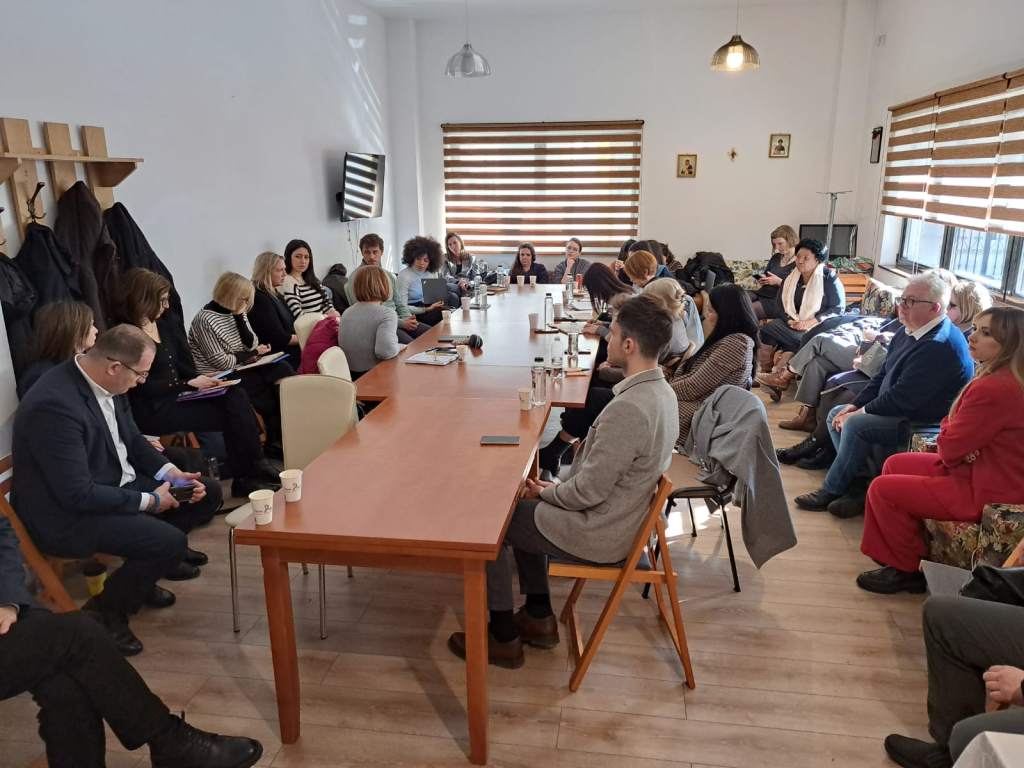
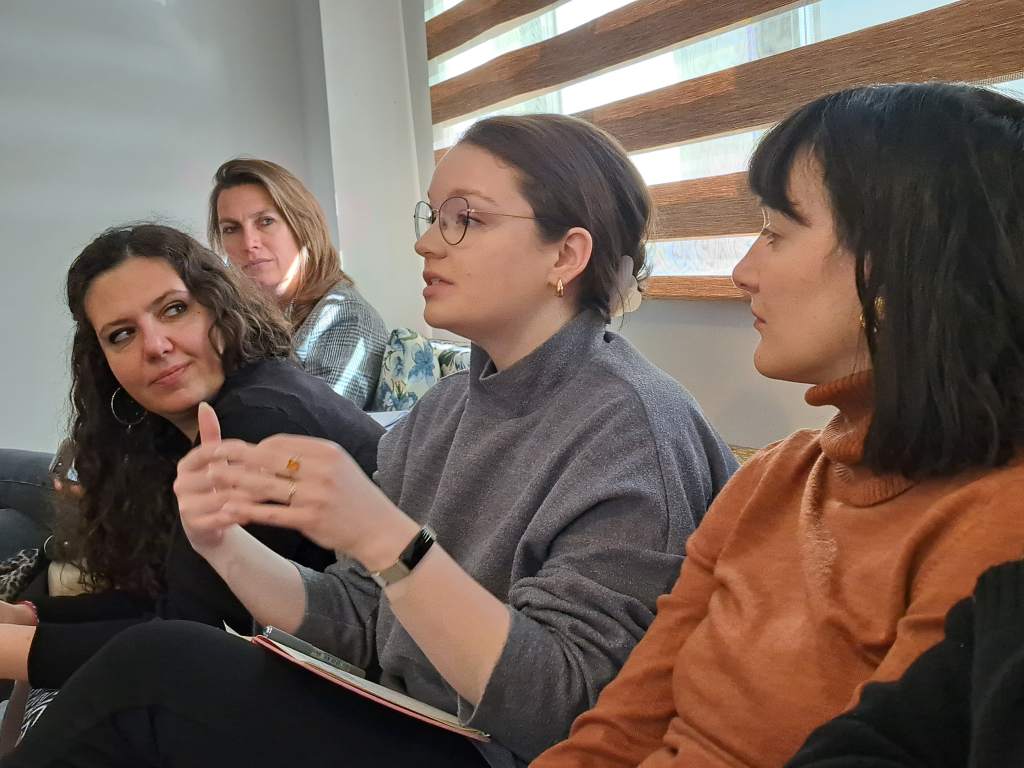
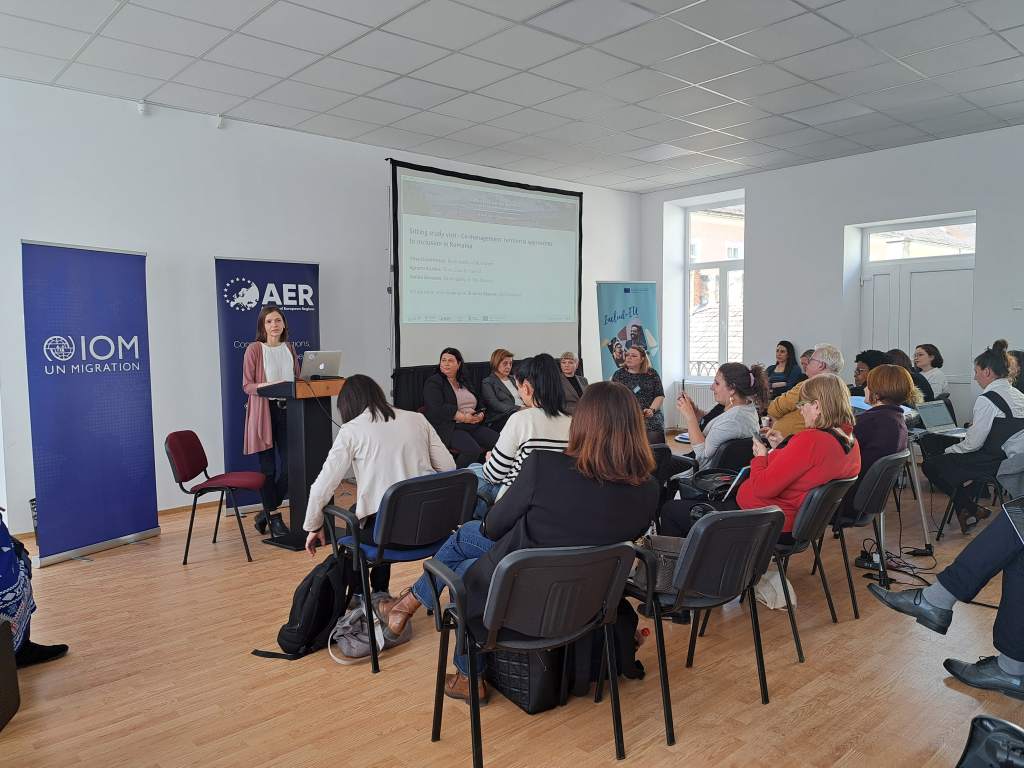
Next steps
While the Includ-EU consortium is still implementing capacity-building and mutual-learning activities (see news here), it is also working on the sustainability of what the project achieved. In particular, a coaching session will be facilitated in June to help the consortium maintain, nurture, and benefit from what they jointly created.
Save the date!
The Includ-EU final event will take place on 6-7 September in Brussels. It will be an opportunity to showcase the project’s achievements, create political momentum with high-level representatives of EU institutions and politicians from different levels of governance, discover yet other good practices, and organise future collaborations. The event will be open to all stakeholders but places are limited.
[1] Patuzzi, Liam. 2020. European Cities on the Front Line: New and emerging governance models for migrant inclusion. Brussels and Geneva: Migration Policy Institute Europe and International Organization for Migration.
